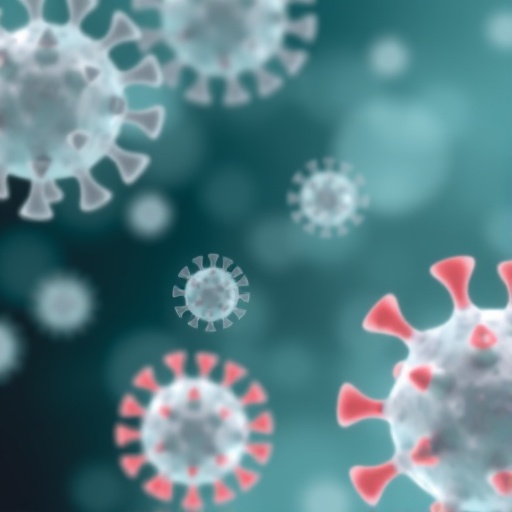In the relentless quest to untangle the complexities of the human immune response to SARS-CoV-2, a new study published in Nature Communications is shedding groundbreaking light on the persistence and functional nuances of spike-specific CD4+ T cells. This research, conducted by Liu, Antoun, Fries, et al., serves as a pivotal advance in our understanding of how long-term immunity after COVID-19 may be orchestrated, particularly in relation to disease severity and cytotoxic capability.
Crucially, the investigation zeroes in on a specific subset of CD4+ T cells—those that target the spike protein of SARS-CoV-2, the principal antigenic component responsible for viral entry into host cells. Unlike antibodies, whose levels tend to wane over months, T cells represent a more durable facet of the adaptive immune response. The study’s longitudinal design revealed that these spike-specific CD4+ T cells do not merely persist but maintain a heightened cytotoxic profile, especially in individuals who experienced mild symptoms during the acute phase of infection.
Detailed immunophenotyping demonstrated that these long-lasting CD4+ T cells exhibit a unique gene expression signature indicative of cytotoxic function. This contradicts the traditional view that CD4+ T cells mainly serve helper roles, offering a nuanced perspective that these cells can directly contribute to viral clearance through mechanisms such as perforin and granzyme-mediated killing of infected cells. The implications of this are profound, as it recasts the role of CD4+ T cells from mere facilitators to frontline effectors in the immune defense against SARS-CoV-2.
Methodologically, the study utilized state-of-the-art single-cell RNA sequencing combined with flow cytometry-based functional assays to characterize the phenotypes and effector functions of T cells isolated from convalescent COVID-19 cohorts. Significantly, the extended follow-up periods—encompassing several months post-infection—allowed the researchers to delineate the temporal dynamics of these immune subsets, something previous studies with shorter observation windows could not capture.
This persistence of spike-specific CD4+ T cells with enhanced cytotoxic potential was notably correlated with less severe clinical manifestations during the acute infection. The data suggest that individuals with mild COVID-19 are more likely to mount a durable and functionally competent T cell response, which may contribute to rapid viral control and reduced tissue damage. Conversely, severe cases appeared to lack such a robust cytotoxic CD4+ T cell population, highlighting potential immune response failures that predispose to worsened outcomes.
In dissecting the cellular mechanisms, the authors elucidated that these cytotoxic CD4+ T cells expressed higher levels of key effector molecules including IFN-γ and TNF-α, cytokines integral to antiviral defense and modulation of other immune cells. Additionally, the expression of transcription factors such as T-bet and Eomes, known to be involved in driving cytotoxic T cell differentiation, further corroborated the effector phenotype of these cells.
A salient aspect of the study addressed the memory characteristics of these T cells. Through phenotypic markers indicative of long-lived memory subsets, the team established that these spike-specific CD4+ T cells did not represent a transient immune reaction but a stable, self-renewing population capable of enduring immunosurveillance. This enduring presence could be crucial in maintaining protective immunity, especially as antibody titers decline over time.
The implications of these findings extend beyond natural infection to the realm of vaccine design and evaluation. Current vaccine strategies predominantly aim to elicit potent neutralizing antibody responses, but such data argue for a complementary focus on fostering durable T cell immunity, particularly cytotoxic CD4+ T cell responses. Vaccines that robustly induce these cells may confer enhanced protection against emerging variants and reduce breakthrough infections.
Moreover, understanding the linkage between mild disease and an effective cytotoxic CD4+ T cell response could inform prognostic tools, enabling clinicians to predict disease trajectories based on immunological markers identified early in infection. This precision medicine approach could tailor therapeutic interventions to boost these cellular responses in patients predisposed to severe outcomes.
From a broader immunological standpoint, the revelation of CD4+ T cells directly mediating cytotoxicity echoes recent paradigm shifts in infection immunology. While CD8+ T cells have historically been considered the principal cytotoxic agents, the discovery of functionally versatile CD4+ subsets challenges this dichotomy, inviting renewed exploration into their roles in viral and possibly other pathogenic contexts.
The study also raises intriguing questions about the potential cross-reactivity and heterogeneity of such CD4+ T cells. Future investigations might explore how prior exposure to common cold coronaviruses or vaccination history influences the quality and quantity of these cytotoxic CD4+ cells, thereby modulating resistance and susceptibility to SARS-CoV-2.
Technically, the approach combined robust immunological assays with high-throughput genomics, enabling a granular view of T cell clonality, specificity, and functional breadth. Such integrated methodologies herald a new era in immunological research, where complex immune landscapes can be mapped with unprecedented detail.
As the global community continues to navigate post-pandemic realities, insights from this study herald optimism in harnessing the immune system’s adaptive capacity for durable defense. The identification of long-lasting, effective CD4+ T cell responses offers a beacon to bolster public health strategies and therapeutic development.
In conclusion, Liu et al.’s research articulates a sophisticated portrait of the immune response to SARS-CoV-2, redefining our understanding of T cell-mediated control and its association with clinical outcomes. With the persistence of spike-specific CD4+ T cells linked to mild disease and enhanced cytotoxic potential, these findings underscore a pivotal cellular target that could reshape vaccine innovation and immunotherapy paradigms. This work stands as a testament to the complexity and adaptability of human immunity in the face of viral challenges.
Subject of Research: Immune response characteristics of SARS-CoV-2 spike-specific CD4+ T cells post COVID-19 infection
Article Title: Long-persisting SARS-CoV-2 spike-specific CD4+ T cells associated with mild disease and increased cytotoxicity post COVID-19
Article References:
Liu, G., Antoun, E., Fries, A. et al. Long-persisting SARS-CoV-2 spike-specific CD4+ T cells associated with mild disease and increased cytotoxicity post COVID-19. Nat Commun 16, 8743 (2025). https://doi.org/10.1038/s41467-025-63711-9
Image Credits: AI Generated




